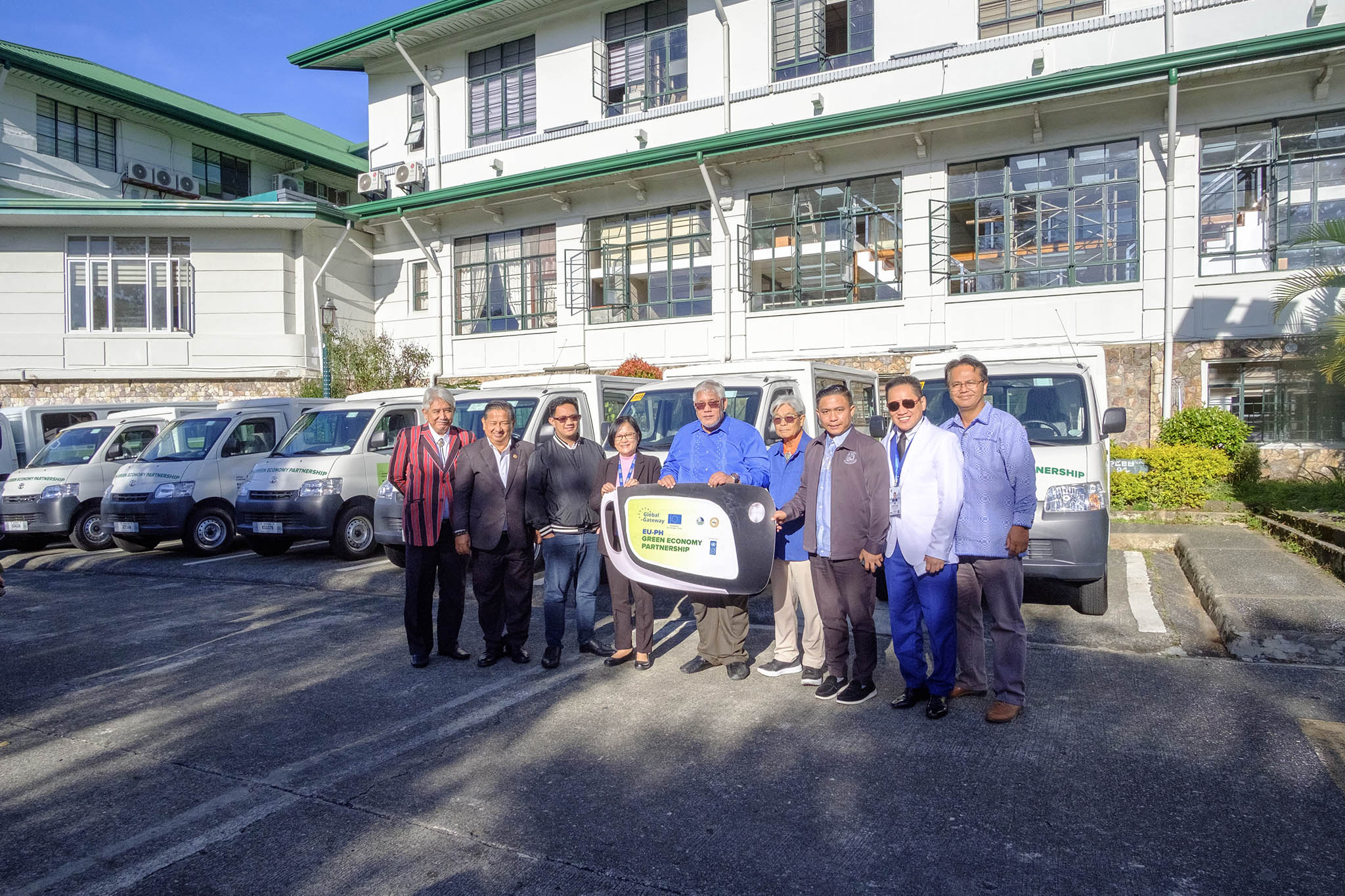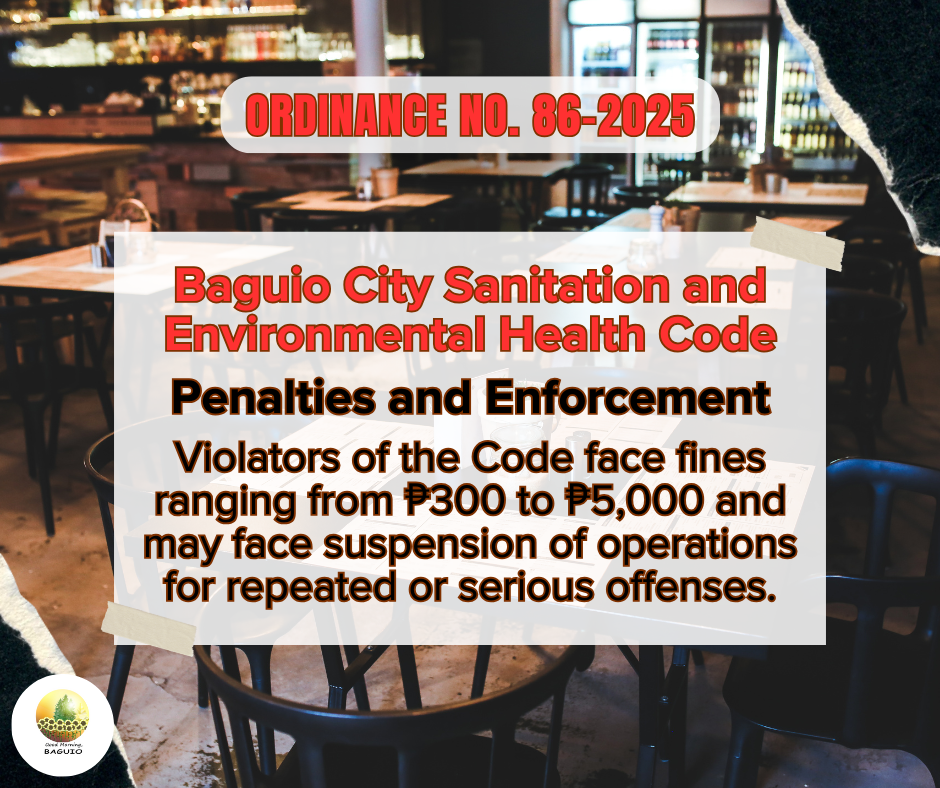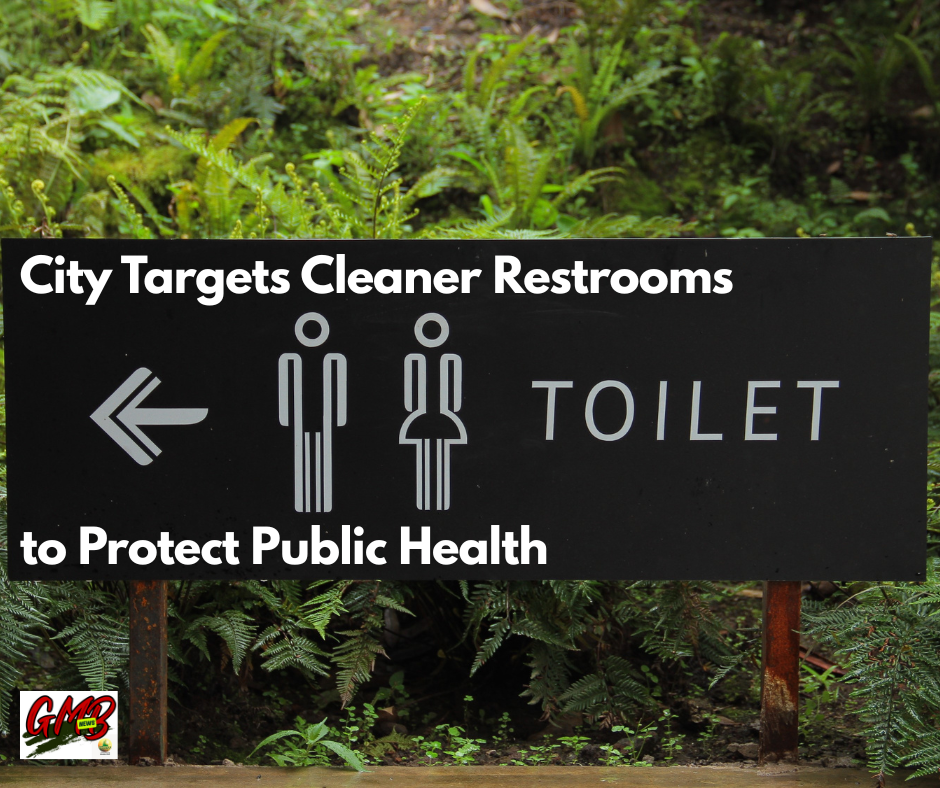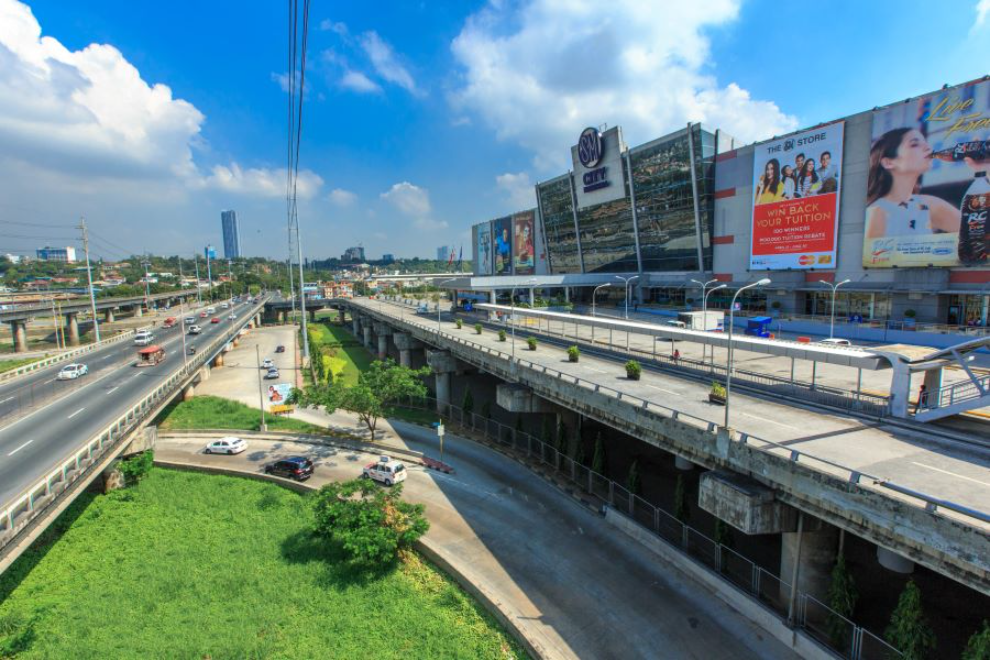
Baguio enacts Sanitation and Environmental Health Code

BAGUIO CITY — The Baguio City Council has approved Ordinance No. 86-2025, establishing the Baguio City Sanitation and Environmental Health Code, a comprehensive policy that strengthens public health protection, hygiene practices, and environmental sanitation across the city.
The new Code serves as Baguio’s principal framework for maintaining public health and environmental cleanliness.
It consolidates and updates all local sanitary regulations to align with national health standards while addressing the city’s unique urban and environmental challenges.
Implemented through the City Health Services Office (CHSO) in coordination with other local departments, the Code mandates stricter regulation, permitting, and monitoring of establishments and activities that affect public sanitation and environmental health.
Key Provisions and Requirements
The ordinance requires sanitary permits, health certificates, and regular inspection protocols for food establishments, hospitals, schools, markets, and other similar facilities.
It also mandates the regular testing of water quality and the protection of water sources from contamination.
Food safety standards are emphasized through strict rules on the handling, preparation, storage, and inspection of food products to prevent food-borne illnesses.
The Code enforces stricter guidelines for solid waste disposal, sewage and drainage management, and healthcare waste treatment.
All businesses and households are required to segregate, collect, and dispose of waste in accordance with environmental laws.
Additionally, it regulates the impounding of stray animals, promotes humane treatment, and enforces sanitation standards for animal-related businesses.
The ordinance also addresses nuisances and offensive trades, prohibiting operations that emit harmful odors, cause pollution, or pose risks to public health. It provides detailed procedures for the disposal of the dead, including burial, cremation, and cemetery maintenance.
Penalties and Enforcement
Violators of the Code face fines ranging from ₱300 to ₱5,000 and may face suspension of operations for repeated or serious offenses.
The City Health Services Office will lead the drafting of the Implementing Rules and Regulations (IRR) in coordination with concerned city offices.
However, officials clarified that the Code’s provisions are immediately enforceable even before the IRR is finalized.
The measure was approved on third and final reading by the City Council on October 27, 2025, and has been transmitted to Mayor Benjamin Magalong for signing.
Share
Recent Posts
- Cordillera regional sports meet opens in Benguet
- BYD Sealion 5 taxi fleet debuts in Cordillera
- SM City Baguio welcomes Lunar New Year
- 30,000 attend Philippine International Hot Air Balloon Fiesta in Clark
- Cordillera police seize P22.7M drugs, arrest 20 in February crackdown
Sections
- Accidents & Emergencies
- Ads & Marketing
- Agriculture
- Anniversaries
- Awards & Recognition
- Baguio's Embrace
- Banking
- Barangay Affairs
- Bazaars
- Business & Economy
- Calligraphy
- Celebrities
- Commercial Developments
- Community Hub
- Concerts
- Consumer Affairs & Entrepreneurship
- Corporate
- Corporate Social REsponsibility
- Creative Economy
- Cycling
- Digital Arts
- Diplomacy & Official Visits
- Diversity & Inclusion
- Education & Youth
- Entertainment
- Environment & Sustainability
- Esports & Streaming
- Events
- Fashion & Beauty
- Festivals
- Film & Media Arts
- Food & Dining
- Golf
- Governance & Policy
- Government & Public Assets
- Health & Wellness
- Holiday Events
- Home & Interior Design
- Indigenous Peoples Affairs
- Infrastructure
- Inspirations
- Jobs & Employment
- Law Enforcement
- Leadership & Appointments
- Legal Affairs
- Legislation
- Literature
- Local Government
- Local Heritage
- Martial Arts
- Milestones
- Mining
- Movies
- Olympics
- Pageants
- People & Personalities
- Performing Arts
- Pertempto
- Poetry
- Politics
- Power & Energy
- Promotions
- Public Health
- Public Safety & Security
- Public Welfare
- Real Estate
- Regional Updates
- Scripture
- Sports
- Technology & Digital Services
- Telecommunications & Digital Policy
- Tennis
- Theatre & Musicals
- Traffic & Transport
- Tributes
- Trustworthy Road
- Urban Development
- Visual Arts
- Weekly Horoscope
- World
Related Articles


Baguio City targets full sanitation compliance by March 2026
Baguio City aims for 100 percent sanitation compliance by March 2026 via intensified inspections and strict enforcement of hygiene standards. … Read More >Baguio City targets full sanitation compliance by March 2026

Protecting communities: SM Prime remains committed to disaster resiliency innovations
SM Prime integrates climate adaptation and sustainability into its projects to build resilient communities. … Read More >Protecting communities: SM Prime remains committed to disaster resiliency innovations

Animal cruelty cases rise in Baguio despite welfare law
Baguio City has reported a rise in animal cruelty cases this year, with five incidents recorded—up from three last year—despite strict laws. … Read More >Animal cruelty cases rise in Baguio despite welfare law